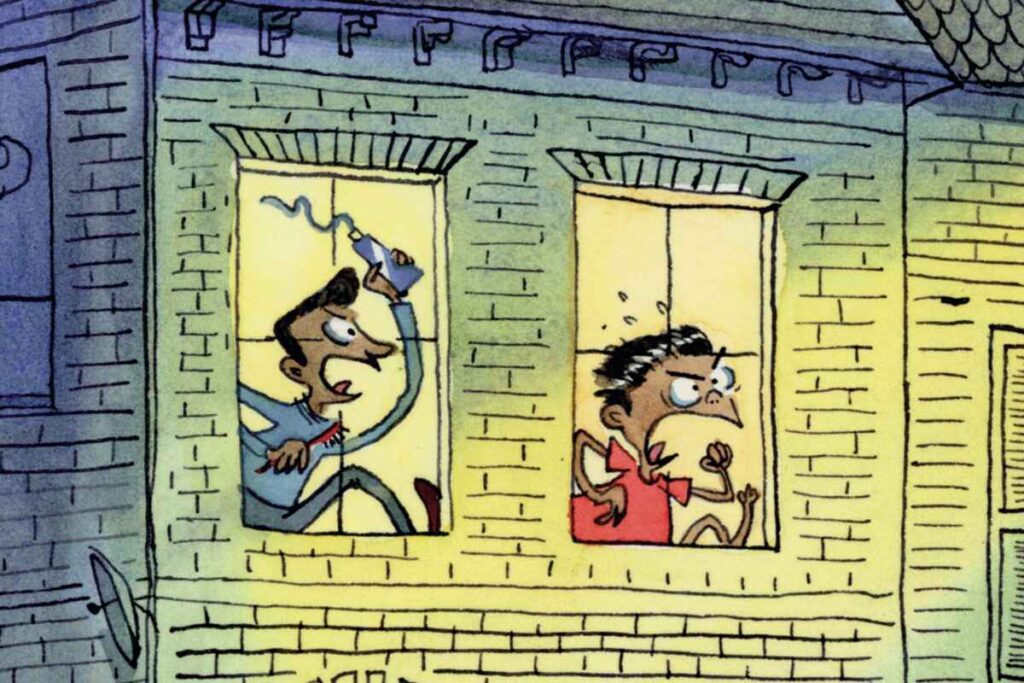It’s not hard to picture a long day, when perhaps things haven’t gone as smoothly as you’d have liked. Imagine it’s early evening, you haven’t eaten properly, nor had that cuppa you’ve been promising yourself, and you find yourself stuck in the bathroom with a child who is flatly refusing to cooperate with what we grown-ups see as a basic, straightforward task: cleaning their teeth. Your child’s tired, although they’re probably pretending not to be. And you’re (even more) tired. You know you have two options. Either dig deep and find a way to brush together with the glee of synchronised dolphins at a water park, or let rip and unleash a Mexican stand-off. In the back of your mind, you’re also drowning at the thought of exactly the same situation occurring again in the morning when everyone needs to get to school on time, not to mention, work. The burning question, as your stress levels head off the chart, is: how can I encourage my child (or children) to brush their teeth without World War III kicking off? And that’s every day until they leave home!
There’s a lot of advice out there to sift through.
Colgate offers a helpful list that summarises much of the universally-accepted guidance on how to develop your children’s oral hygiene habits:
- Teach your child how to brush as soon as they can hold a toothbrush
- Teach them how to look after their teeth using fun dental books and videos
- Teach by playing with dental-themed toys
- Take them to the dentist early so they get used to it
- Play games around toothbrushing
- Lead by example and show them your toothbrushing skills
- Use rewards for positive reinforcement
Oral B has similarly useful tips about empowering children in the bathroom. Perhaps reassuringly, their research confirms you’re far from being the only grown-up struggling to encourage their children to brush their teeth .
- Two thirds of children across the UK regularly refuse to brush their teeth.
- Parents spend an average of nine minutes a day nagging their children to be better brushers.
- An incredible 70% admit that getting children to pick up a toothbrush is the most stressful element of being a parent.

What rings loud and clear across the worldwide web is that most of us struggle with our kids’ toothbrushing habits. And worse, if we’ve failed to set up good oral hygiene habits at the toddler stage, developing a skill set that goes beyond Peppa Pig at the Dentist is essential – delightful though Peppa is for the younger ones.
The UitBlinker study, carried out by a group of oral health professionals in 2019, focuses on how parents and guardians can improve their approach to the toothbrushing habits of children up to the age of ten. The study centres on the behavioural psychology that stimulates positive routines for children. What it recognised was that most of us know the basics of good oral hygiene, but implementing it is an entirely different issue. The study categorically proved this theory, with many parents reporting barriers that prevented them from sticking to the advice on dental care. Random tantrums, teething pain or child fatigue were all given as reasons why children wouldn’t brush their teeth. Some parents preferred to avoid conflict in these situations rather than insist on brushing, which would have meant engaging in, what the study described as ‘very lively debates’ with their child. Other parents reported challenges with tooth brushing due to time constraints, a busy schedule, or feelings of stress and fatigue. We’ve all been there! The findings basically highlighted that simple behaviours like tooth brushing are enmeshed in more complex daily habits, which are influenced by a range of child, parental and family-related factors. What came out on top was the fact that demanding parents or guardians created more resistance in children, which might also negatively affect children’s compliance towards daily toothbrushing in the long term. By comparison, if a parent were nurturing and sensitive, and reinforced a child’s progress with encouragement and compliments, children stood a higher chance of forming good oral hygiene habits, and inevitably, lower levels of dental caries.
So how do you manage to remain positive and encouraging when you’re faced with a seismic eruption that challenges your every last drop of patience?
What almost never fails, if you can muster the will power, is to take a whopping deep breath, physical or mental, and channel the advice of a mindfulness guru like Deepak Chopra, or an ‘educarer’, such as Magda Gerber or Janet Lansbury, whose decades of study, practices and philosophies about raising children help a parent or guardian find inner calm in the most frustrating of moments. Getting cross, or terrifying a child with threatening or angry behaviour lives with them forever, perhaps damaging their relationship with toothbrushing for the rest of their toothbrushing life, whereas our own anger or stress in that moment will pass if we see it for what it is: a child’s harmless protest that simply doesn’t meet our exhausted expectations. The little person in front of you, with the defiance of Goliath or Boudicca, simply needs to understand why they should clean their teeth, and why there is no other option for their dental wellbeing but to clean them. They need to be disarmed. They don’t need you to throw a grenade into the mix. A song, pulling a silly toothbrush face, consistently using a reward chart, or finding a story you can role-play together can all help to diffuse the situation, even with older children.
This is how the story for The Rotters happened. It was a way of explaining to my children why brushing their teeth was so important, and how real rotters in real life would harm them if they didn’t clean their teeth.
But if none of the more rational or fun options work, don’t force their cooperation. Wait. Let them rant and rave. Avoid a war. Discuss toothbrushing techniques and dental truths when both of you are rested and ready. Build a foundation of understanding and awareness that you can pull out like a rabbit from a hat when toothbrushing tiredness creeps in.
The inspiring RIE educarer expert, Janet Lansbury, sums up the perfect approach to this task, describing it as ‘inviting children to participate’.
“We can’t force cooperative activities. They require willingness. So, activities like…tooth brushing…are best handled with subtlety, lots of respect, togetherness, low expectations and a very light touch. One way to demonstrate our respect is by verbally preparing kids for these situations and making them part of a predictable routine. Another is to offer kids as much active participation, autonomy, and choice as possible – exploring the possibilities with them, getting their input, letting them do it by themselves if they can. Inviting children to participate requires us to be flexible, keep our expectations low, and accept less than perfection.”
So, maybe pretending to be synchronised dolphins at an aqua park might not seem so ridiculous after all..?
You can get a copy of The Rotters at Amazon. The references for this blog are here:
- https://www.colgate.com/en-us/oral-health/kids-oral-care/how-to-help-a-child-not-brushing-teeth
- https://www.oralb.co.uk/en-gb/oral-health/life-stages/kids/how-to-encourage-brushing-for-kids
- Peppa Pig at the dentist
- Uitblinker Study – https://www.ncbi.nlm.nih.gov/pmc/articles/PMC6731582/
- https://assets-eu-01.kc-usercontent.com/eb8d5cd8-b7e2-0158-edcf-4eb86f3462b3/15ccf180-8814-43f4-a530-3064626f6981/Uitblinkers%20in%20Childsmile%20%282020-2023%29.pdf
- https://chopra.com/articles/parenting-as-a-spiritual-practice
- https://magdagerber.org/magdas-writings/magda-gerbers-basic-rie-basic-principles/
- https://www.janetlansbury.com/2015/10/putting-an-end-to-power-struggles-with-our-kids/
- https://rie.org/
- https://childmind.org/article/how-to-handle-tantrums-and-meltdowns/
- https://www.amazon.co.uk/Rotters-Cazzie-Phillips/dp/1915036763/ref=sr_1_3?qid=1690542891&refinements=p_27%3AAgnes&s=books&sr=1-3

